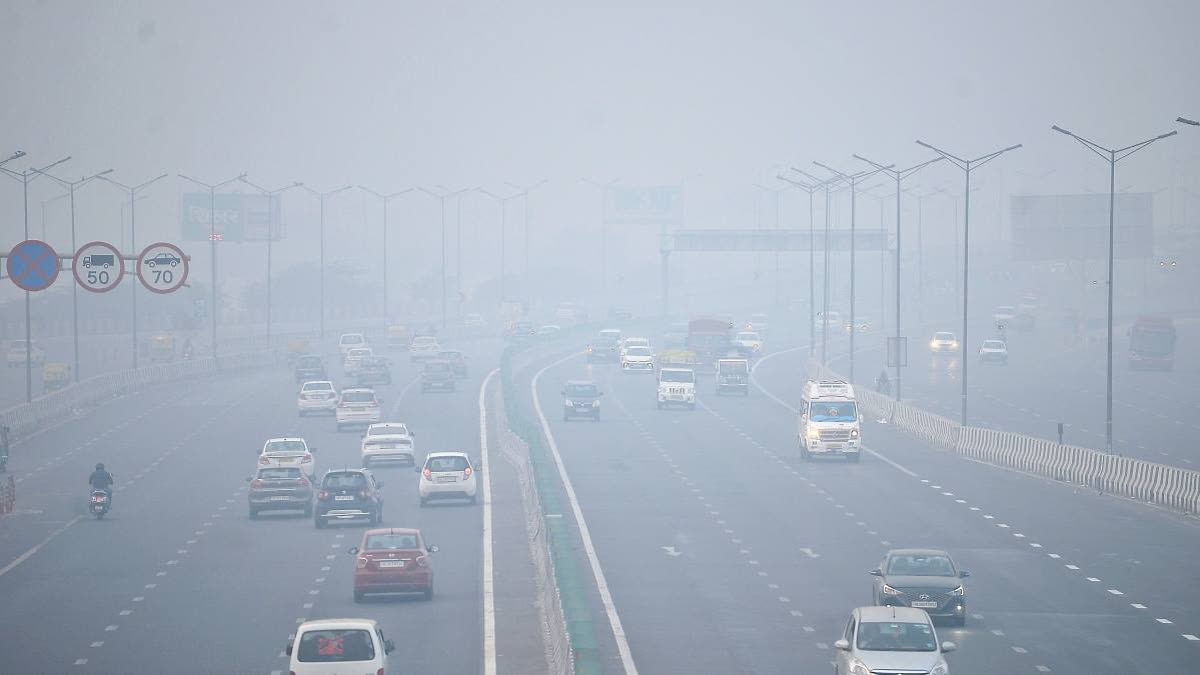New Delhi: Delhi and its surrounding National Capital Region (NCR) are grappling with severe air pollution, with the Air Quality Index (AQI) in several areas crossing the 400 mark on Saturday.
The AQI at Delhi’s Shadipur recorded an alarming 457 (‘severe plus’) at 9 am, while Narela (449), Wazirpur (441), and Jahangirpuri (445) also reported critical levels of pollution, according to the Central Pollution Control Board (CPCB).
This marks the fourth consecutive day of smog engulfing the national capital, Noida, Ghaziabad, Gurugram, and nearby regions.
A local told ETV Bharat, “Cycle is better than a car, it is a little comfortable for the body and it also provides some exercise. Pollution is causing problems, like difficulty in breathing."
"Pollution happens every year but you and I can't do anything about it. The government should find solutions to this pollution. I will say this to the government. Find a solution to this pollution as this is a problem every year. But if the government is not doing anything effective then what we can't do anything about it, the local added.”
Stringent Measures Enforced to Combat Pollution
In response to the deteriorating air quality, the Delhi government has implemented stringent vehicle restrictions. The operation of BS-III petrol and BS-IV diesel four-wheelers has been banned across the city, with violators facing a penalty of ₹20,000 under Section 194(1) of the Motor Vehicle Act, 1988.
Diesel Medium Goods Vehicles (MGVs) meeting BS-III standards or below are also prohibited unless transporting essential goods. Interstate buses powered by electric, CNG, or BS-VI diesel engines are exempt, while others remain banned unless operating under an All India Tourist Permit.
Graded Response Action Plan (GRAP-III)
The Commission for Air Quality Management (CAQM) has invoked the third phase of the Graded Response Action Plan (GRAP-III), introducing various measures to mitigate pollution:
1. Road Cleaning and Sprinkling: Intensified road sweeping and water sprinkling operations have been initiated, targeting pollution hotspots and high-traffic areas.
2. Construction Ban: All private construction and demolition activities have been suspended. However, essential government infrastructure projects continue unaffected.
3. Public Transport Enhancement: To reduce vehicular emissions, 106 additional shuttle buses have been deployed, and metro train services have been increased.
Changes in Office Timings and School Operations
To ease traffic congestion and reduce pollution, Delhi Chief Minister Atishi announced staggered office timings for government employees. Central government offices will operate from 9 am to 5:30 pm, Delhi government offices from 10 am to 6:30 pm, and Municipal Corporation of Delhi (MCD) offices from 8:30 am to 5 pm. This measure, approved by Delhi LG VK Saxena, will remain in place until February 2025.
